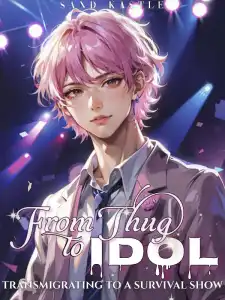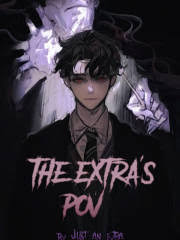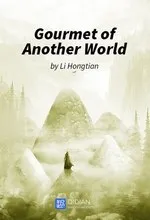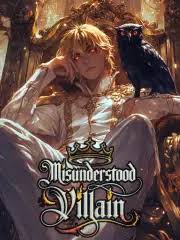The Story in 3 Sentences
Jun Hao, a ruthless street thug betrayed and killed by his own boss, finds his consciousness merging with a system interface that promises a new mission: Become A Top Idol.
He awakens in the body of Choi Joon-ho, a timid trainee on the verge of entering Rising Stars, a cutthroat idol survival show where his newfound skills in singing and dancing are his only weapons to survive and secure a future for his beloved younger sister.
What begins as a desperate bid for survival quickly spirals into a chaotic journey through the glamorous yet vicious world of K-pop, where Jun Hao must confront scheming rivals, unravel the mysteries of his new identity, and decide if he can truly leave his thug life behind.
Why It Stands Out
1. A System That Sings and Punches
The novel’s core appeal lies in its bizarre yet brilliant fusion of a gritty gangster narrative with the high-stakes, glittering world of idol survival shows. The system integration provides a perfect LitRPG framework for progression, offering missions and rewards that feel fresh against the backdrop of vocal training and stage performances, creating a genre-blending experience that is both violent and whimsical.
2. Comedy Born from Cognitive Dissonance
The relentless humor stems from the stark contrast between Jun Hao’s hardened thug mentality and the absurdities of idol culture. His attempts to navigate delicate social situations with brute force logic, his utter confusion over fan service, and his deadpan delivery of thug-inspired one-liners in the midst of a pop performance generate a consistent stream of laugh-out-loud moments that balance the story’s darker themes.
3. An Unlikely Underdog You Can’t Help But Root For
Despite his overpowered system and past life, Jun Hao remains a deeply relatable underdog. His primary motivation— saving his sister— grounds the entire extravagant plot in palpable emotional stakes. His struggle is not just about winning a show but about redeeming a life he never asked for, making his every victory feel earned and every setback deeply personal.
Characters That Leave a Mark
There’s Lin Zhi – A central figure from the original Joon-ho’s past whose re-emergence creates waves of drama and conflict, forcing Jun Hao to confront the history of the body he inhabits and adding a layer of deep, personal mystery to the idol competition.
You’ll meet Choi Joon-ho’s younger sister, the unwavering emotional anchor of the entire story. Her well-being is Jun Hao’s sole motivation, and her innocent belief in her brother provides the heart that prevents the protagonist from fully succumbing to his cynical nature.
And the White Tiger gang leader? He’s a formidable and persistent antagonist from Jun Hao’s past life whose unexpected presence in the new world escalates the conflict from simple survival show rivalry to a dangerous game of life and death, blurring the lines between Jun Hao’s two identities.
The Flaws Fans Debate
The protagonist’s characterization often feels inconsistent with his backstory; for an ex-mafia enforcer, Jun Hao displays a surprising level of passivity and naivety when dealing with enemies, frequently needing his system to remind him of his goals rather than exhibiting the cunning and caution one would expect.
The narrative is often criticized for introducing excessive amounts of unnecessary amateur drama, particularly in the latter half, with subplots involving characters like Moon and Xin that feel contrived and repetitive, derailing the main plot progression and testing reader patience.
A significant reliance on the system as a plot device undermines character growth; Jun Hao’s skills in singing, dancing, and production are largely granted by the system rather than earned through visible, relatable struggle, making his progression feel unearned and reducing the stakes of his challenges.
Must-Experience Arcs
Ch. 1–150: The Survival Show Crucible – The initial arc is widely praised for its tight pacing and high tension, perfectly capturing the anxiety and competitive spirit of the Rising Stars show as Jun Hao uses his unique advantages to claw his way from the bottom.
Ch. 300–450: The Label Negotiations – This mid-novel arc shifts the focus from the stage to the boardroom, exploring the business side of the idol industry as Jun Hao, now a rising star, must navigate complex contracts and corporate power plays that are just as dangerous as any physical threat.
Ch. 900–1046: The Final Reckoning – The concluding arc brings the story full circle, forcing Jun Hao to finally reconcile his past life as a thug with his present as an idol, culminating in a finale that resolves the central mystery of his transmigration and secures his sister’s future.
Killer Quotes
“Other people game overnight, I game overnight and bleed.”
“Without that ‘two ounces of meat’ down there, shouldn’t I keep a low profile?”
“Sweetie is life Sweetie is hype Sweetie is cute Sweetie is truth”.
Cultural Impact
The novel developed a dedicated fanbase for its unique premise, often sparking discussions on Webnovel about the feasibility of a tough guy succeeding in the idol world, with many readers admitting it was their first foray into stories about K-pop.
It inspired a minor meme trend within its reader community where fans would jokingly apply “thug logic” to everyday polite situations, epitomized by phrases like “negotiate first, punch later” taken from the protagonist’s approach to problems.
Despite its flaws, the novel maintained a high rating of 4.69 out of 5 across its long run, demonstrating a strong and passionate core audience that appreciated its blend of humor, heart, and action.
Final Verdict
Start Here If You Want:
A hilarious and often heartwarming story about second chances and the transformative power of love for family, set against a unique backdrop.
A power progression system that is clearly defined and integrated directly into the plot, providing a satisfying sense of forward momentum.
A protagonist whose deadpan humor and fish-out-of-water experiences provide a constant source of entertainment, even in the midst of serious drama.
Study If You Love:
Stories that explore the intricate and often dark mechanics behind the glamorous facade of the entertainment industry, from survival shows to label politics.
Character-driven narratives where the central conflict is as much about internal identity and reconciling a violent past with a peaceful future as it is about external threats.
Creative uses of the transmigration and system genres, blending them to create a fresh take on both the idol and action tropes.
Avoid If You Prefer:
A perfectly consistent protagonist; Jun Hao’s characterization sometimes wavers between ruthless thug and naive pushover to serve the plot.
A story that stays tightly focused on its main premise; the narrative introduces a large cast of side characters and subplots that can feel bloated and unnecessary.
A conclusive romance; the novel explicitly avoids any significant romantic subplots, focusing instead on familial love and career ambition.





